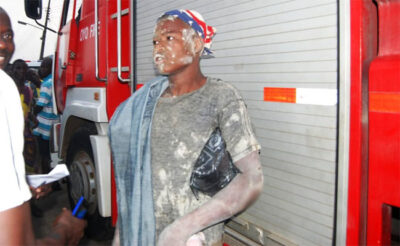The Great Wall of China is one of the seven wonders of the world and, as I recently discovered, climbing up the stairs to the point in the wall where the ‘plaque of the hero’ is located is a rite of passage for the Chinese.
“You are not a TRUE MAN until you have climbed the great wall”.It is certainly a feat striding up high uneven stone steps, many of the treads worn down the middle into unexpected hollows by the passage of multitudes of climbing feet over the past millenia.
The wall was started in the 5th century BC and construction continued into the 16th century.We were guided from the city to the wall by a young female student who impressed us.
She confidently reeled off historical facts about her people, as well as information about the growth of the Chinese capital, Beijing, over the last 20 years – all without referring to any notes.
She also drew from her own life experience to discuss changes in lifestyle between her parent’s generation and hers and, most importantly, about the causes of the changes, the impact on the people and the country.It got me wondering about two things.
Firstly, about our own rites of passage that are connected to our history. You will have to forgive me, I could only think of three things that my own generation of over 40s were expected to have experienced by early adulthood.
1. Visiting the National Museum in Lagos;
2. Climbing Olumo Rock and, 3. Visiting the confluence of the Rivers Niger and the Benue.
Perhaps, even the excitement of being out during a festival trying to avoid getting struck by a masquerade. For some, it was seeing Fela Anikulapo Kuti perform at The Shrine.
I could not think of a single rite of passage for the current generation. Do they have any and, if they do, is it left solely to the schools to organise those character and nation-building visits to sites of historical interest?
Can the parents of children attending Day Waterman School be counted on to take their children to the nearby Olumo Rock in Abeokuta? Likewise for students of Loyola Jesuit and the confluence at Lokoja; Adesoye College students and the Osun shrine and artist’s enclave in Oshogbo?
There is a map of historical sites of Nigeria created after great effort by members of Legacy, the historical and environmental interest group, nearly 10 years ago.
It lists sites that we should not reach adulthood without knowledge of and, at least for the locals, without having visited. Legacy printed and distributed 5000 of the maps to public schools nationwide. Only one school acknowledged receipt.
Perhaps, they should have also made the private schools aware of it. At least most of them can generate the resources to take their pupils and students on excursions.Returning to Beijing. At a point of the tour of the city, we stopped at the energy centre of the Olympic village.
Students of Chinese medicine, some who looked as young as 16, were working holiday jobs giving foot massages according to the principles of reflexology. The hardsell approach was a bit too direct for us, but they succeeded in persuading many to buy some of their products in order to earn commission.
Their professors were randomly offering palmology health checks. One member of our party was diagnosed with high cholesterol and poor blood circulation.Prove your worth This brought to mind another rite of passage – work experience.
The concept of work experience is a western one. As Africans, our traditional culture demands that children be as useful as they can be to their parents according to their abilities and age.
This automatically meant lending a helping hand in your parent’s trade or activities from as young as five years old. Once higher education was introduced and children had to move to where their college was located, that obligation shifted to whoever you were staying with.
Many successful Nigerians today did domestic work for the relatives they lived with in their student days, and it was obligatory.As our communal spirit faded into true urbanism – living with strangers or renting accommodation – it was still normal to find work to do after class and at weekends to pay for one’s living expenses, while parents were responsible for school fees.
When did that rite of passage disappear? Children from both poor and rich homes now act like they should be full-time students subsidised by anyone but themselves.
Surely, going into 419 (advance fee fraud), and ‘Abuja runnings’ (prostitution) is the lazy person’s alternative to good, honest and humble labour. Our girls are busy chasing men instead of offering tutoring, taking on cleaning jobs, getting involved in the tourism industry, and other temporary work that come up in sales, research, events, etcetera.
Our boys are similarly busy running errands for white collar criminals and drug barons instead of tutoring, doing security work, working in restaurants and clubs, and running honest errands for busy executives.The point of a rite of passage is that it is a highly beneficial character-building experience.
We experience hard work, sacrifice, extreme tiredness, persistence and, sometimes, pain.They are familiar to us when we meet them again in our adult lives. We can then draw on the experience gained to overcome what life throws at us.Well, I made it to the hero’s plaque high up on the Great Wall of China.
Determination and pride (fear of shame) got me that far. It was physically and mentally tasking. I was humbled by the scale of the wall. I mourned the multitude who lost their lives over many centuries building it.
I marvelled at the vision, determination, and continuity of the emperors who built it.Now, I need to discover where our own wall and our own hero’s plaque is, so that my country people can also have the opportunity to prove themselves ‘true men’ and ‘true women.’


